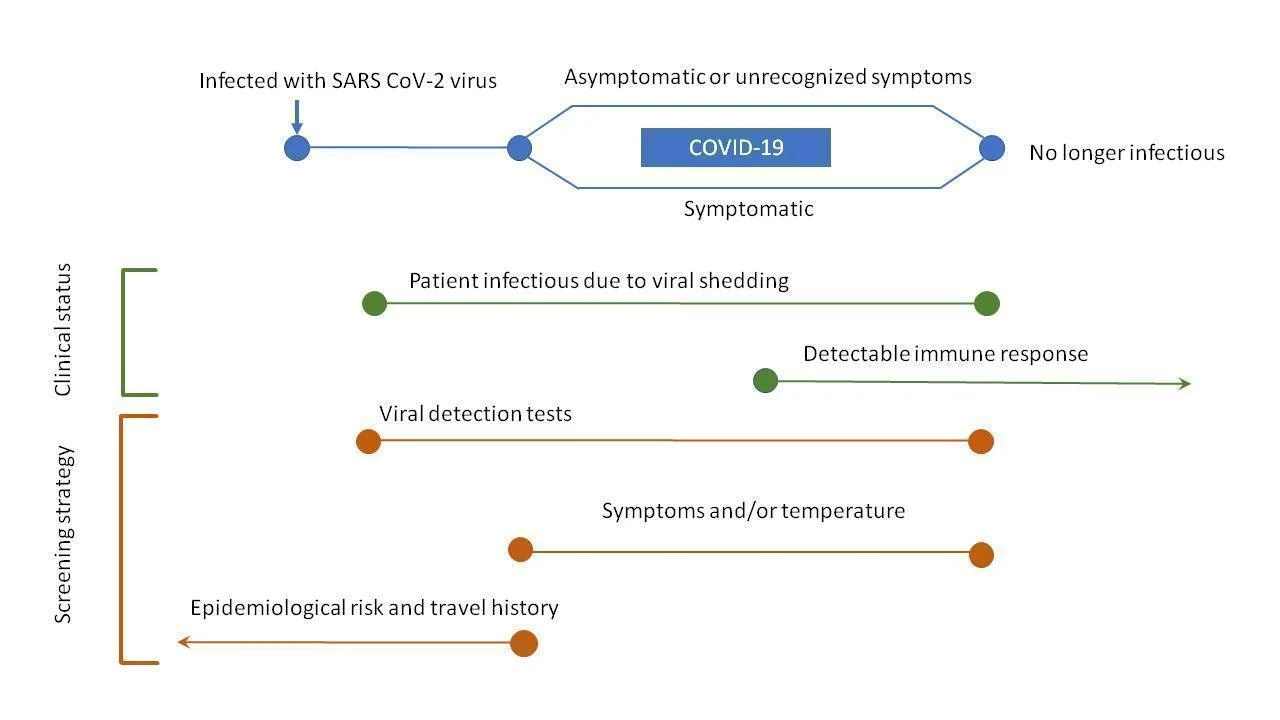How effective are screening tests for COVID-19?
A review on the effectiveness of general screening for SARS-CoV-2, compared to absence of screening and accuracy of general screening in people apparently not affected by COVID-19 were published.
Current screenings for SARS-CoV-2 have limited sensitivity
The results of a review on the effectiveness of general screening for SARS-CoV-2 infection, compared to the absence of screening and accuracy of general screening in people apparently not affected by COVID-19 were published.
Made in cooperation with our partners at esanum.it
Given the low sensitivity of existing approaches, greater emphasis should be placed on other methods that can prevent transmission of the virus.
Screening is a strategy to detect a disease or associate generic symptoms with a specific disease in individuals who are asymptomatic or may not relate non-specific symptoms to a target disease. Screening is not diagnostic and usually requires additional tests to confirm or exclude disease. In the case of screening for SARS-CoV-2 infections, the aim is to identify infected individuals to reduce subsequent transmission. The figure illustrates the role of screening in identifying individuals with SARS-CoV-2.
Screening strategies may include clinical symptom assessment, epidemiological risk assessment, body temperature control, laboratory testing (RT-PCR or CRISPR), or a combination of these approaches. Screening can be set up by telephone, online, or in person. In-person screening can take place in a variety of settings, including health care facilities, pharmacies, workplaces, airports and train stations, schools, etc.
A recent review by Cochrane tried to assess the positive and negative effects of screening for SARS-CoV-2 infection on apparently healthy people. It also considered whether screening can correctly identify individuals infected and not infected with the virus.
This review shows that screening strategies currently give uncertain outcomes, with different levels of confidence. Indeed, a high percentage of infected individuals may not be detected and therefore infect others. Similarly, some healthy individuals may be falsely identified as positive and may be subjected to screening and even quarantine.
The authors point out that the limited accuracy of the RT-PCR buffer test represents a further obstacle in confirming the results of the various screening approaches. However, according to the research, the limited usefulness of current screening approaches does not justify their abandonment. The results indicate the need to place greater emphasis on other ways to prevent transmissions, such as the use of masks, spacing, quarantine, and appropriate personal protective equipment for workers at increased risk.
Scholars believe that these findings should stimulate further research. With regard to the effectiveness of screening, primary studies on the effectiveness of screening vs. no screening, or those to compare universal screening vs. targeted screening could provide valuable information. Evidence on the possible harm of screening, including false alerts and false assurances, would also be valuable. Future modeling studies should base their assumptions on systematic reviews of the best available evidence regarding test accuracy and characteristics of SARS-CoV-2 infections.
With regard to the accuracy of screening: the emergence of previously undeclared information on symptoms and risk factors, and the lack of clarity about the correct threshold for determining positive cases, hints at the need that future strategies may need to address one or more of these limitations. Although it should be noted, many screening strategies evaluated in this review have limitations stemming from the long latency period of the virus.
Screening strategies can be improved and then combined to address individual deficiencies in current testing approaches. For example, a comprehensive and improved symptom assessment with or without other epidemiological risk factors could accurately identify positive cases, even those that PCR tests may fail to detect due to imperfect PCR sample collection.
Source:
Viswanathan M, Kahwati L, Jahn B, Giger K, Dobrescu AI, Hill C, Klerings I, Meixner J, Persad E, Teufer B, Gartlehner G. Universal screening for SARS‐CoV‐2 infection: a rapid review. Cochrane Database of Systematic Reviews 2020, Issue 9. Art. No.: CD013718. DOI: 10.1002/14651858.CD013718.
